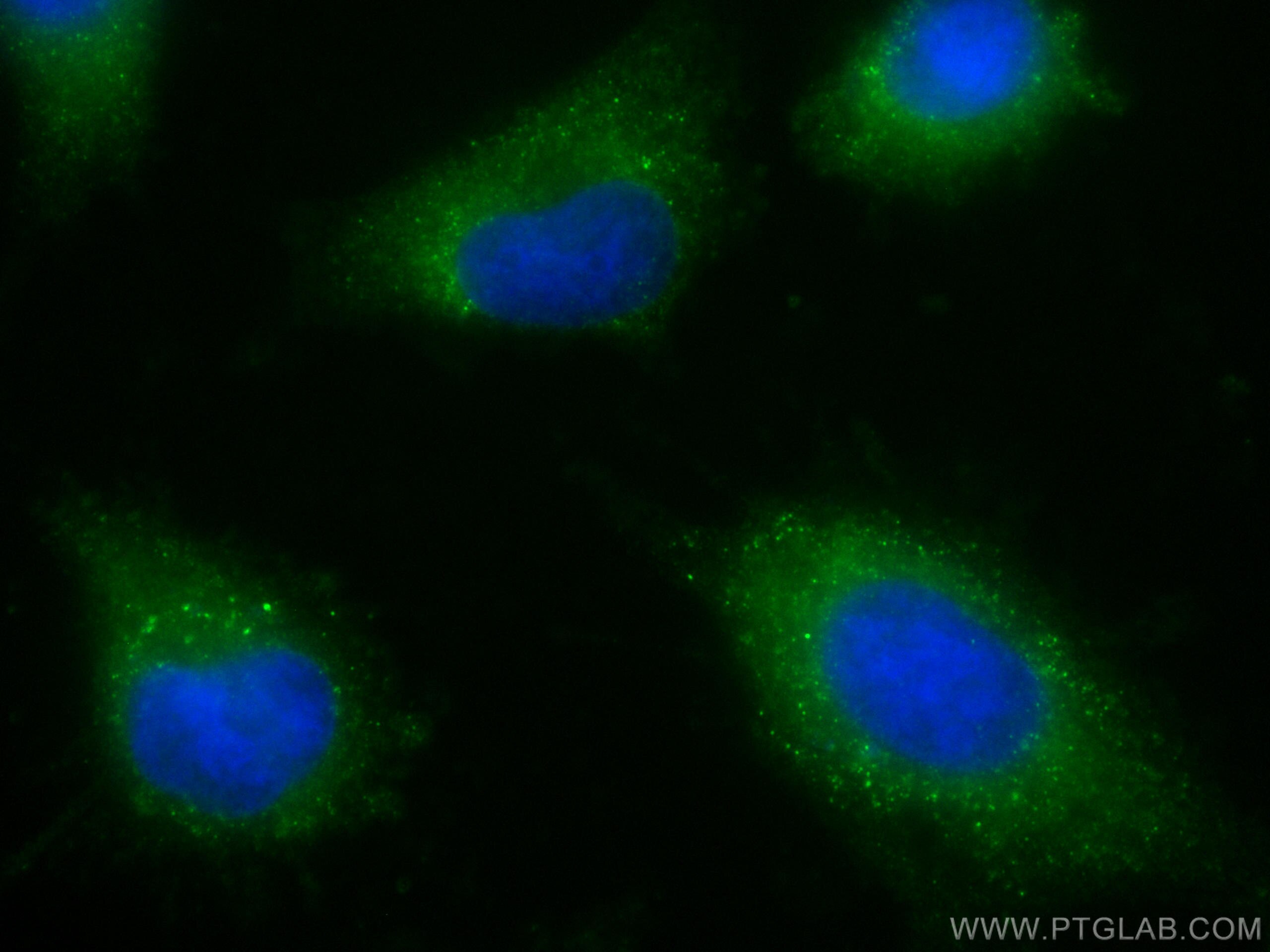Validation Data Gallery
Filter:
Tested Applications
| Positive IF/ICC detected in | U-251 cells |
Recommended dilution
| Application | Dilution |
|---|---|
| Immunofluorescence (IF)/ICC | IF/ICC : 1:50-1:500 |
| It is recommended that this reagent should be titrated in each testing system to obtain optimal results. | |
| Sample-dependent, Check data in validation data gallery. | |
Product Information
CL488-68160 targets LANCL1 in IF/ICC applications and shows reactivity with Human, mouse, rat , pig samples.
| Tested Reactivity | Human, mouse, rat , pig |
| Host / Isotype | Mouse / IgG1 |
| Class | Monoclonal |
| Type | Antibody |
| Immunogen | LANCL1 fusion protein Ag32665 相同性解析による交差性が予測される生物種 |
| Full Name | LanC lantibiotic synthetase component C-like 1 (bacterial) |
| Calculated molecular weight | 399 aa, 45 kDa |
| Observed molecular weight | 40 kDa |
| GenBank accession number | BC028685 |
| Gene Symbol | LANCL1 |
| Gene ID (NCBI) | 10314 |
| RRID | AB_3084424 |
| Conjugate | CoraLite® Plus 488 Fluorescent Dye |
| Excitation/Emission maxima wavelengths | 493 nm / 522 nm |
| Form | Liquid |
| Purification Method | Protein G purification |
| UNIPROT ID | O43813 |
| Storage Buffer | PBS with 50% glycerol, 0.05% Proclin300, 0.5% BSA , pH 7.3 |
| Storage Conditions | Store at -20°C. Avoid exposure to light. Stable for one year after shipment. Aliquoting is unnecessary for -20oC storage. |
Background Information
LanCL1 ( also known as P40 or GRP69A), is homologous to bacterial lanthionine synthetase C (LanC) family, which is involved in the biosynthesis of antimicrobial peptides (lantibiotics). LanCL1 was identified as a reduced glutathione (GSH)-binding protein and primarily expressed in neural tissues and testis.
Protocols
| Product Specific Protocols | |
|---|---|
| IF protocol for CL Plus 488 LANCL1 antibody CL488-68160 | Download protocol |
| Standard Protocols | |
|---|---|
| Click here to view our Standard Protocols |
